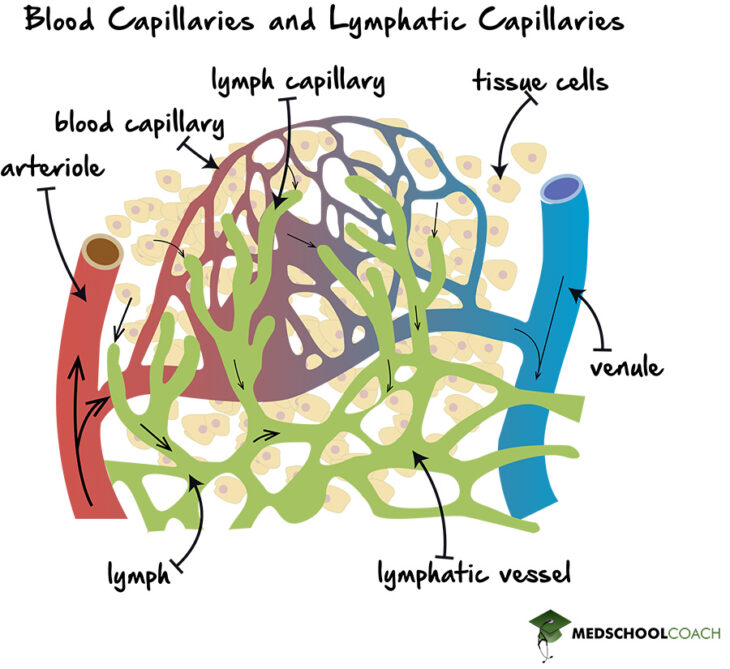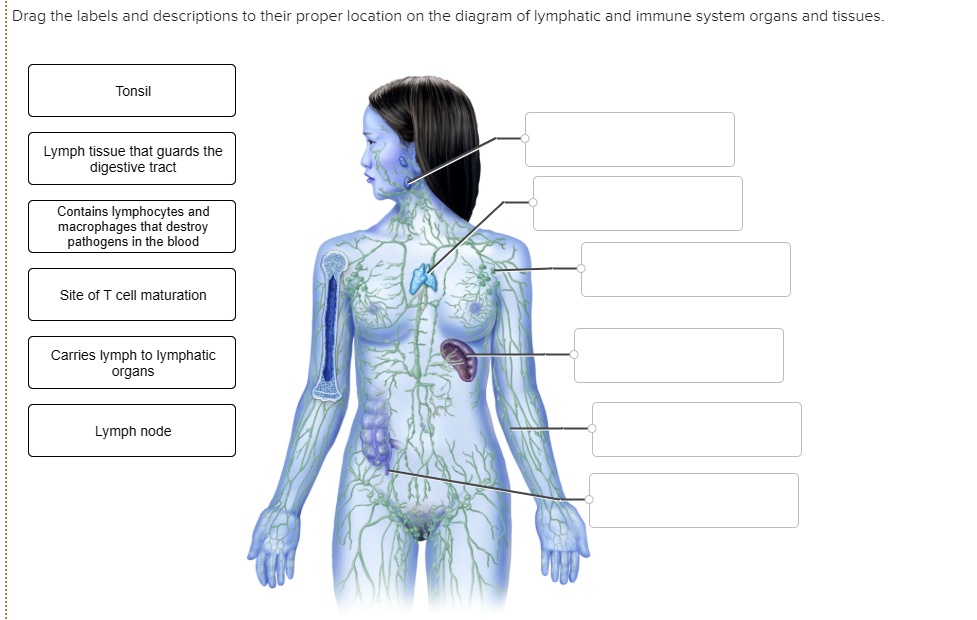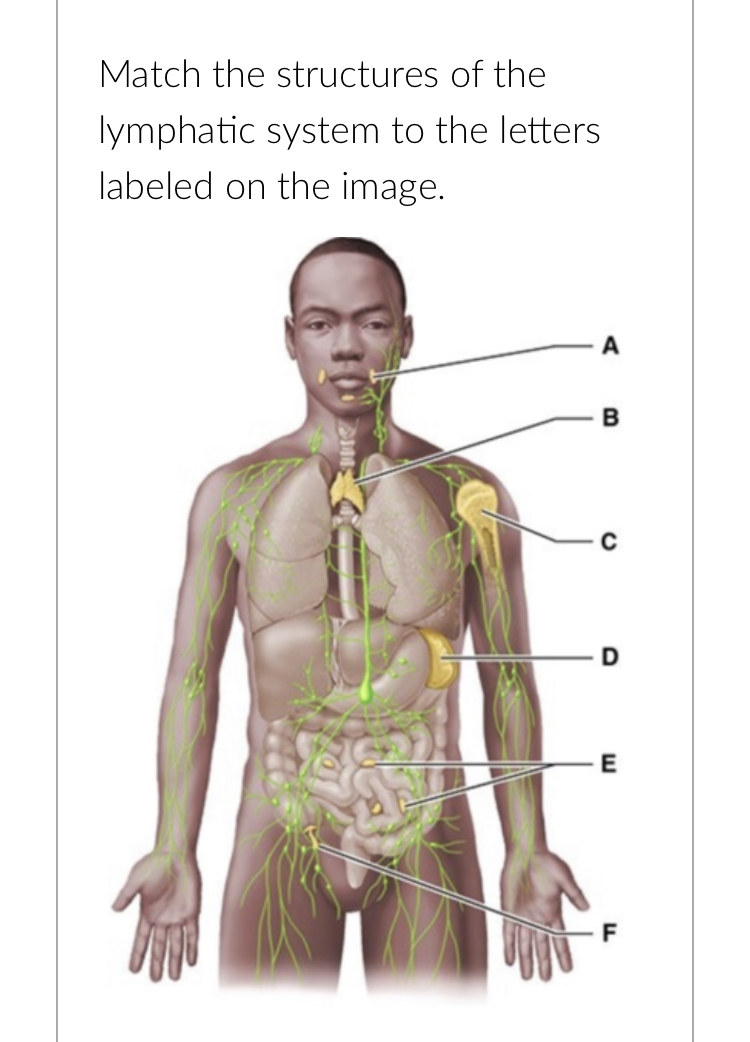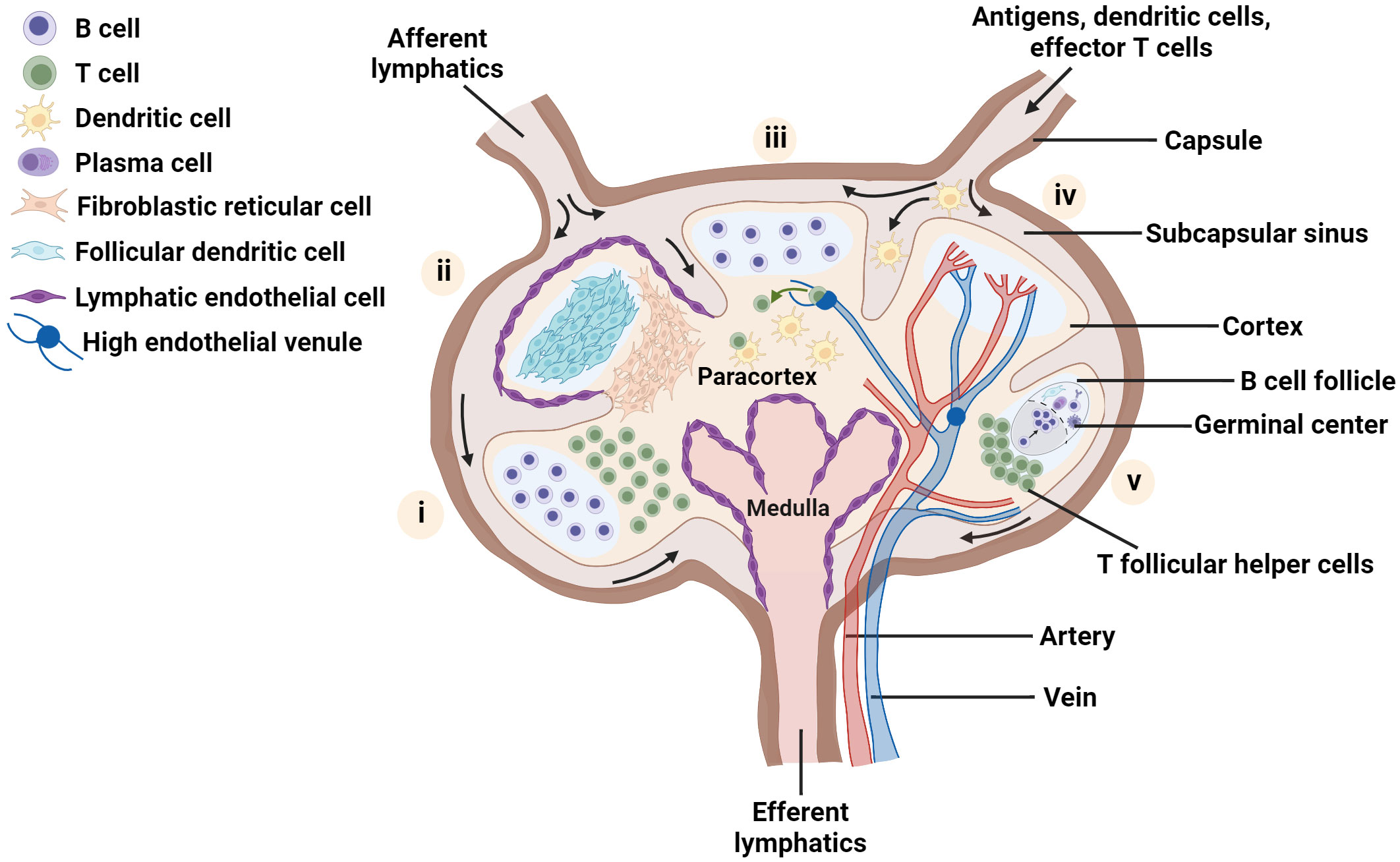Match Each Lymphatic Cell With Its Function

Imagine a bustling city, its intricate network of streets and alleyways teeming with specialized workers. Each has a distinct role, contributing to the overall health and safety of the metropolis. Now, picture that city within you – it’s your lymphatic system, a hidden defender constantly working to keep you well.
This intricate network is the body’s unsung hero, and at the heart of its effectiveness are its specialized cells. Understanding the roles of these key players—lymphocytes (B cells, T cells, and NK cells), macrophages, and dendritic cells—is critical to appreciating how our immune system functions and protects us from disease. This article will delve into the unique functions of each lymphatic cell type and how they work synergistically to maintain optimal health.
The Lymphatic System: A Hidden Defender
The lymphatic system is a complex network of vessels, tissues, and organs that work in tandem with the circulatory system. It plays a critical role in fluid balance, fat absorption, and, most importantly, immunity. Think of it as the body’s sanitation department and security force, all rolled into one.
Unlike the closed loop of the circulatory system, the lymphatic system is a one-way street. It collects excess fluid, called lymph, that leaks from blood vessels into tissues. This fluid carries waste products, cellular debris, and pathogens.
The lymph then travels through lymphatic vessels to lymph nodes, small bean-shaped structures scattered throughout the body. These nodes act as filtering stations, where immune cells survey the lymph for threats.
Lymphocytes: The Immune System's Elite Force
Lymphocytes are the stars of the adaptive immune response, responsible for targeted and long-lasting immunity. They recognize specific threats, like viruses and bacteria, and mount a tailored defense. There are three main types of lymphocytes: B cells, T cells, and NK cells.
B Cells: Antibody Producers
B cells are the antibody factories of the immune system. When a B cell encounters an antigen (a molecule recognized as foreign), it differentiates into plasma cells.
These plasma cells then churn out antibodies, specialized proteins that bind to the antigen and mark it for destruction by other immune cells. This process, known as humoral immunity, is crucial for fighting extracellular pathogens.
B cells also create memory cells. Memory B cells remain in the body long after the initial infection is cleared, providing long-lasting immunity. If the same antigen is encountered again, these memory cells quickly activate and produce antibodies, preventing reinfection.
T Cells: Orchestrators and Attackers
T cells are the conductors and direct combatants of the cellular immune response. Unlike B cells, T cells can't recognize free-floating antigens.
They require antigens to be presented to them by other cells, such as macrophages or dendritic cells, on special molecules called MHC (major histocompatibility complex) proteins. There are two main types of T cells: helper T cells and cytotoxic T cells.
Helper T cells, often called CD4+ T cells, are the immune system's quarterbacks. They don't directly kill infected cells, but they orchestrate the immune response by releasing cytokines. These signaling molecules activate other immune cells, including B cells and cytotoxic T cells, and enhance their activity.
Cytotoxic T cells, also known as CD8+ T cells, are the immune system's assassins. They directly kill cells that are infected with viruses or bacteria, or that have become cancerous. They recognize infected cells by the antigens displayed on their surface and then release toxic substances that induce cell death.
NK Cells: Natural Killers
NK cells, or natural killer cells, are the body's first line of defense against infected and cancerous cells. Unlike T and B cells, NK cells don't require prior sensitization to recognize their targets. They are part of the innate immune system.
NK cells patrol the body, looking for cells that lack certain surface markers or display stress signals. When they encounter a target cell, they release cytotoxic granules that induce cell death. NK cells are particularly important for controlling viral infections and preventing the spread of cancer.
Macrophages: The Janitors and Antigen Presenters
Macrophages are large, versatile cells that play multiple roles in the immune system. They are phagocytes, meaning they engulf and digest cellular debris, pathogens, and foreign substances.
Macrophages are found in tissues throughout the body, where they act as sentinels, constantly monitoring their surroundings for threats. Once a macrophage engulfs a pathogen, it processes it and presents pieces of the antigen on its surface to T cells, activating the adaptive immune response.
This antigen presentation is crucial for initiating a targeted immune response. Macrophages also release cytokines that attract other immune cells to the site of infection and promote inflammation.
Dendritic Cells: The Messengers to T Cells
Dendritic cells are professional antigen-presenting cells. They are the most effective at activating naive T cells, those that have never encountered an antigen before.
Like macrophages, dendritic cells capture antigens through phagocytosis or pinocytosis (cell drinking). They then migrate to lymph nodes, where they present the antigens to T cells.
Dendritic cells express high levels of MHC molecules and other co-stimulatory molecules, which are essential for activating T cells. They act as messengers, bridging the gap between the innate and adaptive immune systems.
A Symphony of Immunity
The lymphatic cells don't work in isolation. They interact with each other in a complex and coordinated manner to mount an effective immune response. For example, when a pathogen enters the body, macrophages and dendritic cells engulf it and present antigens to T cells.
Helper T cells then activate B cells, which produce antibodies. Cytotoxic T cells kill infected cells, while NK cells target cells that have escaped immune surveillance. This coordinated effort ensures that the pathogen is eliminated and that the body is protected from future infections.
"The immune system is not just a collection of cells, but a dynamic and interconnected network. Understanding the roles of each cell type and how they interact is crucial for developing effective treatments for infectious diseases and autoimmune disorders." - Dr. Eleanor Vance, Immunologist at the National Institutes of Health.
The Lymphatic System and Overall Health
A healthy lymphatic system is essential for overall health and well-being. When the lymphatic system is not functioning properly, it can lead to a variety of health problems.
Lymphedema, a condition characterized by swelling in the limbs due to lymphatic fluid buildup, is one example. Cancer can also spread through the lymphatic system, as cancer cells can travel to lymph nodes and establish new tumors.
Furthermore, autoimmune disorders can disrupt the delicate balance of the lymphatic system, causing the immune system to attack healthy tissues. Maintaining a healthy lifestyle, including regular exercise and a balanced diet, can support optimal lymphatic function.
Looking Ahead
Research into the lymphatic system and its cells is ongoing, with scientists constantly learning more about its complexities. Emerging therapies, such as immunotherapies that harness the power of T cells to fight cancer, are showing great promise.
Understanding the intricate workings of the lymphatic system and the roles of its key players is vital for developing new strategies to prevent and treat diseases. It is a field with exciting potential for improving human health.
The lymphatic system, with its dedicated army of cells, works tirelessly behind the scenes, often without us even realizing it. Understanding the roles of each of these cells allows us to appreciate the amazing complexity and resilience of our bodies, and the constant battle being waged to keep us healthy and protected. From the antibody-producing B cells to the antigen-presenting dendritic cells, each player is essential to the symphony of immunity. Recognizing their importance empowers us to make informed choices about our health, supporting our body's natural defenses and fostering a life of wellness.

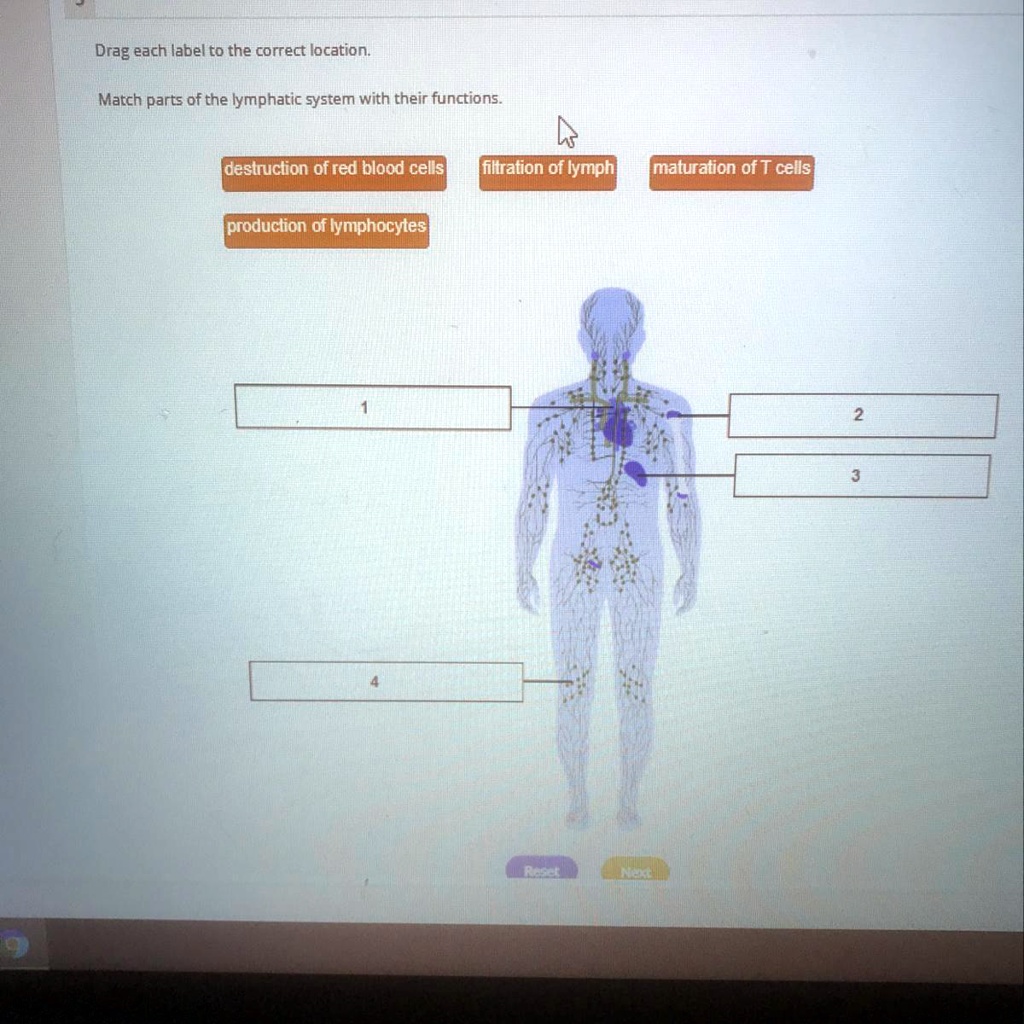
![Match Each Lymphatic Cell With Its Function [FREE] Match each part of the lymphatic system with the correct label](https://media.brainly.com/image/rs:fill/w:750/q:75/plain/https://us-static.z-dn.net/files/d0e/397092f1a48b5eb2c70bbcbf4f19a629.png)

